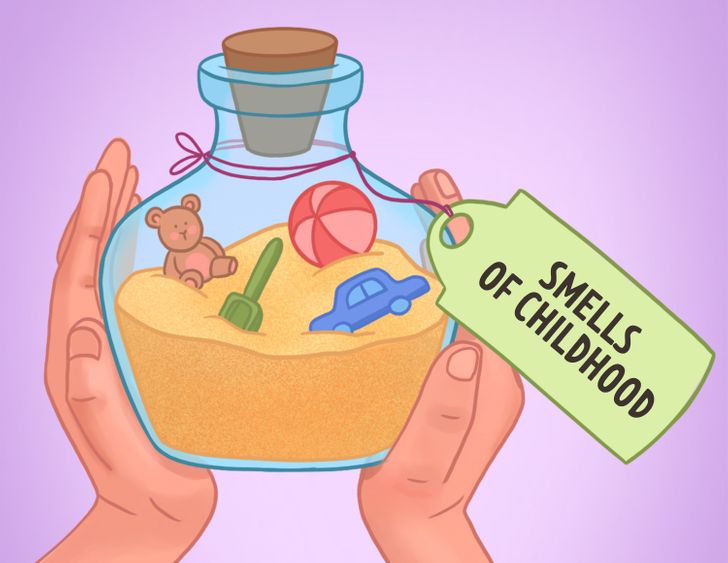You pass a bakery and the smell of fresh cinnamon buns reminds you of the neglected time you spent at your grandmother’s house as a child. Or it could be the scent of your mother’s perfume that you suddenly smell in the crowd and make you want to pick up the phone and call her right away.
It is truly amazing how smells can trigger the most vivid memories and strongest emotions, and there is the real science behind it. We were curious as to why smells have this magical power to unlock our memories, and this is what we found.
It’s The Brain’s Anatomy That Closely Connects Smell And Memory

The part of the brain that handles odors is called the olfactory bulb. This structure sends information to other parts of the brain, particularly the hippocampus, which plays a crucial role in creating new memories for everything that happens to us. In our brain, the olfactory bulb and the hippocampus are very close together.
The olfactory bulb also has easy access to the amygdala, the brain structure responsible for memories and emotional responses. The location of the olfactory bulb near the brain structures related to memories and emotions explains why smells can arouse nostalgia.
We may not even identify specific smells at specific times in life, but our brains associate these smells with memories. If the first time you tasted a cinnamon roll was at your grandmother’s house, your brain likely connects the smell of that cinnamon roll to your grandmother’s house.
Tastes Can Also Bring Memories Back

According to science, the flavors of the food we eat are actually a combination of tastes (sweet, for example) and smells. That is why nostalgia can appear when you eat something that your brain associates with a certain period of your life.
Smells Can Help You Train Your Brain

Our sense of smell is so closely linked to our brain structures that the power of smell can even be used to train our brain and cognitive abilities. Science says that smelling different smells, memorizing them, and identifying them can improve non-olfactory cognitive skills, such as verbal fluency (the ability to produce as many words as possible from a specific category).
So-called “olfactory training”, which encourages people to smell and memorize different smells, can result in the generation of new connections between brain cells or in the strengthening of existing connections. Who would say that smells have so much to do with the things that happen in our brain?
Have you ever noticed how your memories return when you smell a specific scent? What scents bring vivid memories to you?


